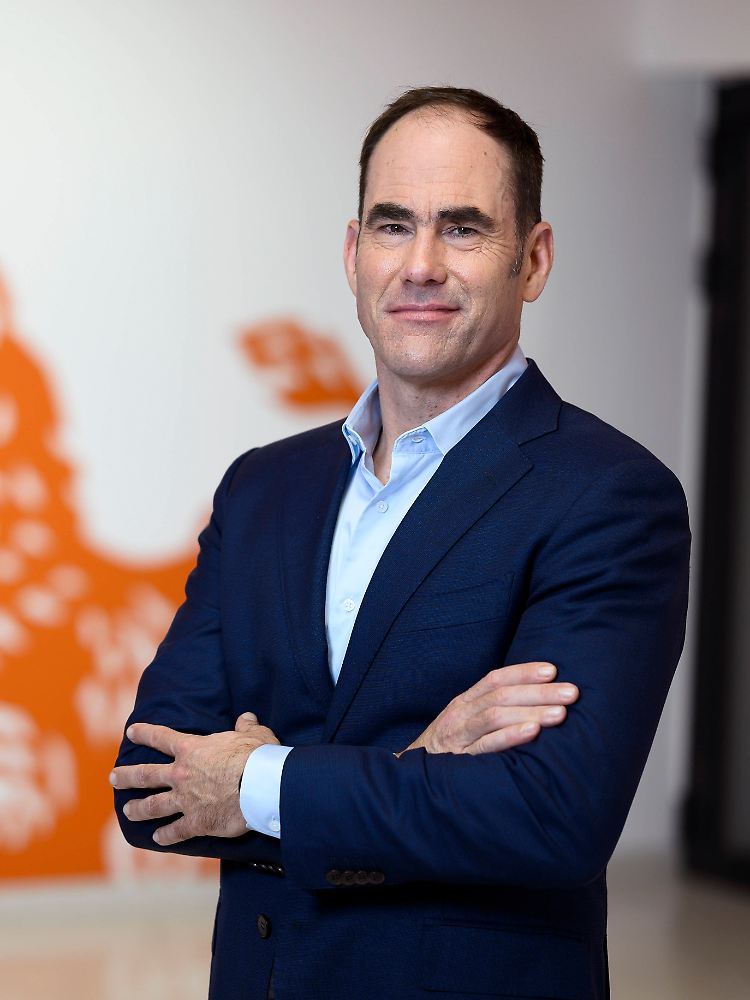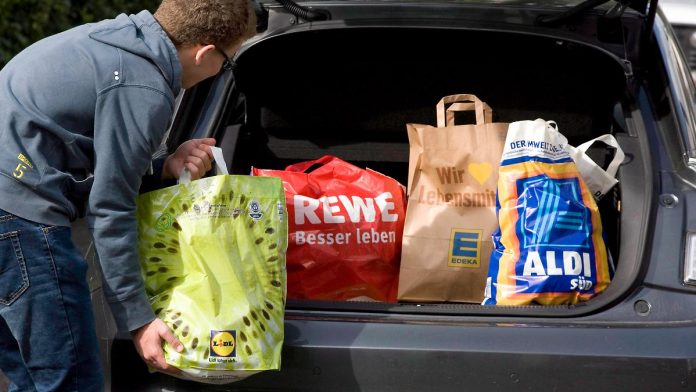Economy in long stagnation
“This is a different crisis than those we know”
This audio version was artificially generated. More information | Send feedback
Bad news after the other comes from the German economy. Business indicators interpret steeply down. The chief economist of the Großbank Ing,, Carsten Brzeski, however, does not believe that Germany is falling into a deep recession. In conversation with ntv.de, the economist predicts a development that we have not yet experienced in this country.
NTV.de: German economic output has recently shrunk. Business indicators such as the IFO index for the mood in companies or the GfK index for consumption also point down. If you have to give a school grade, how bad is the situation of the German economy?
Carsten Brzeski: We have now returned to a four. In spring there was still a spirit of optimism, a little optimism. We surprisingly had growth in the first quarter, many indicators pointed up. But last we see, for example from May how the mood turns again. The IFO index, for example, has dropped for the fourth time in a row. The trend of the economy has been going back down since May.
What is behind it? What has changed since spring?
First of all, it is a reality check. The optimism from spring was unfortunately exaggerated. Many people wanted it to get better. In this respect, psychology was behind it. In addition, in terms of content, there was hope behind it that the global economy – especially the Chinese economy – might be a little better than feared at the turn of the year. The US economy also got going well. In Germany, for example, the construction sector ran a little better than feared.
Then what happened?
This optimistic analysis was very short -sighted. Because it was all the time that the economy would cool down. It was also clear that what we saw in the construction sector was very short -term due to the end of winter. Above all, however, not all of them understood in spring that we have not only the economic but also structural problems in our economy. There was still the idea that the developments were all part of the economy cycle and it would have to get better at some point.


Carsten Brzeski is the chief economist of the Dutch Bank Ing.
(Photo: Imago/Rheinmainfoto)
What are the structural factors you speak of?
What many have not noticed is that, for example, the role of China is structurally changes. China has become a system rival. Our export economy no longer benefits from China as much, no matter what happens to the economy. And we also no longer benefit from the US economy to the extent as in the past because of the increasing protectionism. The optimists also underestimated uncertainty among the German population. We have known geopolitical uncertainty for a few years, but now the political uncertainty inside is also added, lack of planning security for companies and with consumers. This also has to do with the politics of the traffic light coalition – such as the back and forth in the heating law. Despite increasing income, consumers have become careful, for example with a view to the labor market. The number of unemployed is increasing, as is that of the bankruptcies. All of this is not yet dramatic, but people feel it and become more careful when consumption.
Overall, this is a fairly dark picture you draw. What's next? Are we heading for a deep economic crisis?
We are in a crisis. But this crisis is different from the one we know so far. We are not in a recession. It doesn't matter whether the growth is minus 0.1 percent or plus 0.1. It is important: If we look at the size of our economy, we are currently about to the stand of pandemic. So we have not grown on average over four years. We are in stagnation, comparable to what Japan has experienced in recent years. A long stagnating economy has problems that we have not known so far. She gets distribution problems between poor and rich, between old and young. These are structural changes that we already feel and that will increase.
Is there really no economic hope? For example, real income increases as much as it has been for a long time. The job market is well there despite a certain deterioration. That could be a foundation to get the economy going.
There are two jokers for the economy. The first is consumers whose income increases. The second is the companies whose stocks are at an atypical, enormously high level. Usually these stocks would have to be broken down, and then it is produced again. That could happen every month. Then only a little more orders would have to come back in and industrial production should – a bit – get going again. However, this was also our jokers for the first half of the year – and unfortunately they didn't pull. As for consumers, one should not forget that they look back on several years with loss of purchasing power due to the high inflation. People build financial buffers again before spending their money. I don't want to have everything bad: On the one hand, stagnation does not mean that everything is going down the stream. We will have some growth again at some point. But we will certainly not be able to celebrate an economic miracle 3.0 in the next few years.
The federal government regularly brings growth packages, growth turbos and so on the way to start the economy. Or are we simply defenseless at these structural developments in China and the USA?
These packages of the traffic lights go in the right direction. But this turbo often lacks enough energy, i.e. money. These packages are too small to really affect growth. The role of good economic policy is primarily to give security and stability in the long term. For example, this is a problem with energy policy. The current problem is not that energy prices are too high, but that companies have no planning security. You do not know what level the prices will be in the coming years. Since we are in long -term stagnation and not in a short -term recession, traditional economic policy does not help. It could at most spark straw fire. What we need are long -term investments in digitization, infrastructure and education. We need a long -term economic policy strategy instead of the individual mosaic stones, here a subsidy, there billions for a semiconductor work. And of course this strategy must then be communicated accordingly. As is well known, the economy is 50 percent psychology. This could result in a spirit of optimism that gets us out of this stagnation again.
Max Borowski spoke to Carsten Brzeski


